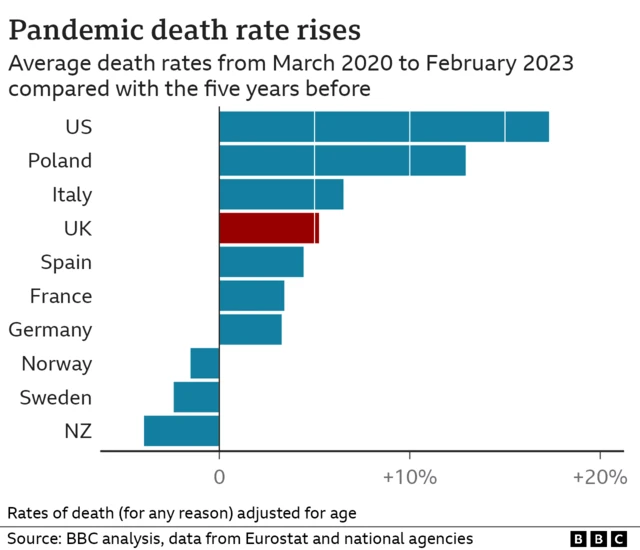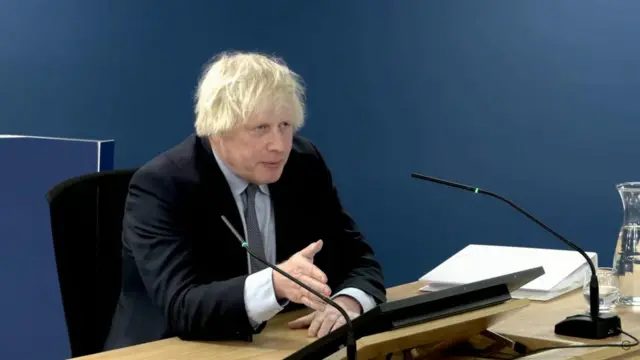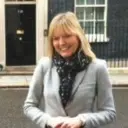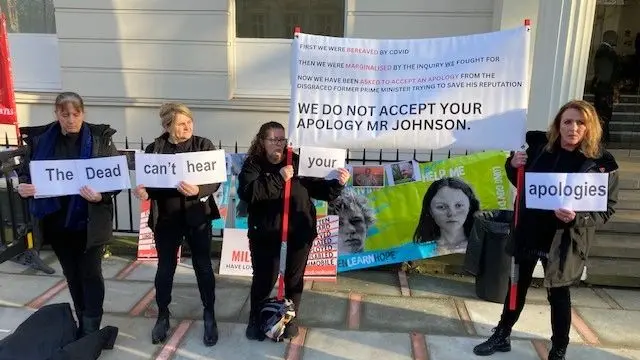Watch: Moment Johnson apologises for pain and loss of Covid victimspublished at 11:32 GMT 6 December 2023
While the hearing is taking a brief break, now is a good time to bring you a key moment from Boris Johnson's evidence so far.
He began with an apology, saying: "Can I say that I understand the feelings of the victims and their families, and I am deeply sorry for the pain and the loss and the suffering of those victims and their families."
Boris Johnson says he is 'deeply sorry for pain and loss of Covid victims'








